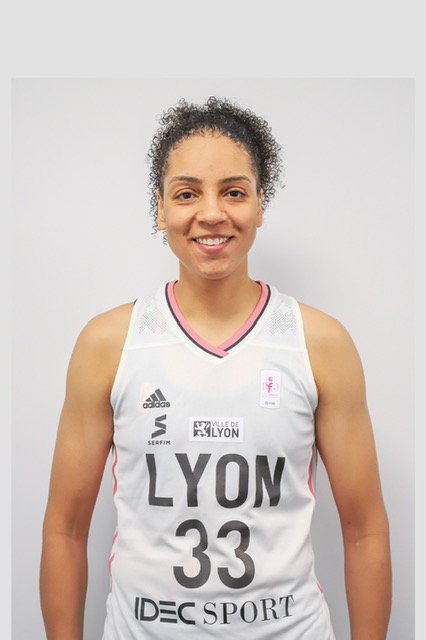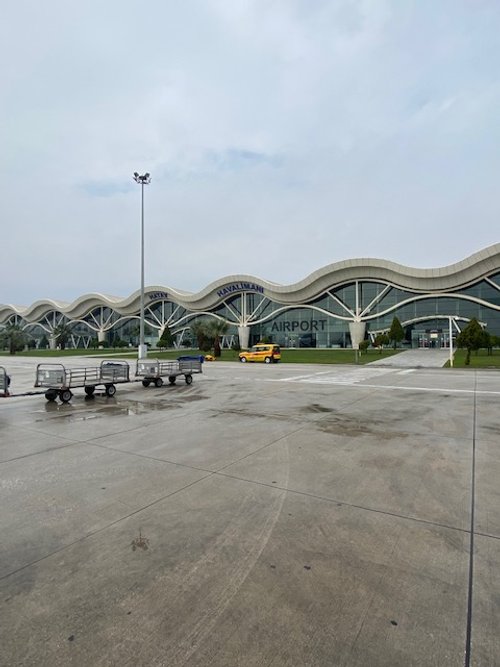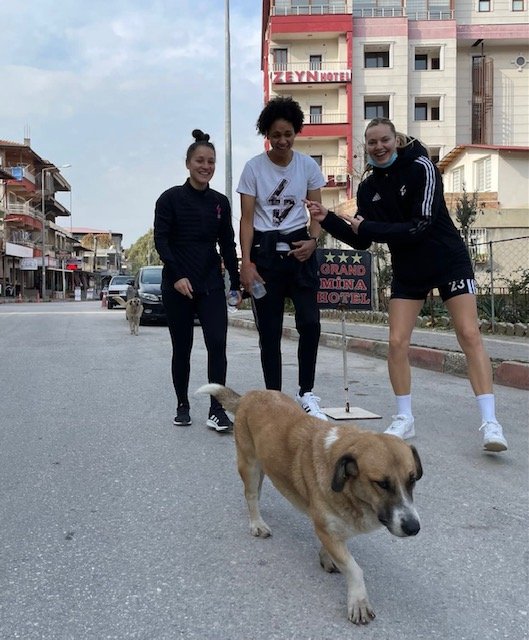Beauty in the Creases
At the very center of our core, I believe humans are hardwired to love and connect. Hate and discrimination, therefore, are not natural instincts, but rather taught behaviors.
I’ve had the opportunity to travel all around the world for basketball. I’ve been to the most frigid parts of Russia and the most controversial parts of Israel. I’ve spent the last seven years of my life living in Europe for six to eight months out of the year, playing the game I love. Never once have I felt unsafe or uneasy.
Recently, my team and I traveled to Hatay, Turkey for a EuroCup game. Prior to this trip I had never visited Turkey. My thoughts and opinions regarding the country, therefore, were not shaped by my own experiences but rather by outside sources and personal accounts from friends and teammates. I was curious to experience Turkey for myself, but I was also unusually anxious. I racked my brain tirelessly trying to reason my emotions with my perceptions.
Finally it dawned on me: Growing up in the United States, whether intentionally or unintentionally, by the messages of media outlets, through the current events studied in school, and as a natural response to terrorist attacks and war, I was taught to fear the Middle East. And since we fear what we don’t know or perhaps what we’ve only been taught, I realized why my calm demeanor was more cautious than cool.
As we exited the Hatay airport, I noticed several men with semi-automatic rifles draped around their necks.
Great welcoming committee, I thought. Really helping the nerves over here.
They carefully watched my teammates and me as we loaded the bus. Once it was time to roll out, the men packed into a multi-passenger van and led us 45 minutes down the road to our hotel. They were our police escort. This became the norm during our short stay in Hatay. Every time we left the hotel, we were either led or trailed by the van full of Turkish officers.
Part of me wanted to know what we were being protected from, why the escort was necessary in the first place. I never mustered up enough courage to ask. Instead, I just assumed it was customary and decided that some questions were better left unanswered.
I couldn’t help but wonder is this how all discrimination and racism begins? If we’re only exposed to one side of the story, does that story become our truth? Or if we have preconceived ideas that are then validated by a single experience, do we cement our ideas and opinions as reality, or do we remain open to other experiences and points of view? I was determined to do the latter.
I spent 72 hours in Hatay. Here were some of my observations:
The people were hustlers. Blue collar workers. Grinders. They simply did what they needed to do to make ends meet. They seemed content, though. Happy with their day-to-day grind, skeptical of new faces, yet incredibly hospitable with their time and resources.
I saw men riding around on motorcycles and mopeds with bags of trash larger than me somehow anchored to the back of their rides. They went from dumpster to dumpster searching for things they could salvage in exchange for money. I imagined them going home after a grimy day of work only to be met by their children’s warm embrace and a hot plate prepared by their wife. I assume that made it all worthwhile.
The infrastructure was modest. Some buildings were completely abandoned and well on their way to destruction, while others were newly built and modern in design. Some homes resembled the tarnished villages you’d see in an underdeveloped country, while others mimicked the high rises of a wealthy city.
I guess the United States isn’t the only country with stark wealth discrepancy.
Oranges and lemons grew from trees in abundance. Corpses of red meat hung from store front windows. Stray dogs roamed the streets and claimed their territory. Some were curled into corners of flower boxes, while others preferred to plop right in front of shops and businesses. You could tell they craved the occasional passerby that would shower them with TLC. I, of course, couldn’t help myself, so by the time my teammates and I had finished our active recovery walk around the hotel, I had six four-legged friends trailing our every move.
How on earth am I going to sneak six dogs through customs?... I better not risk it.
Schoolchildren played outside on a slab of concrete covered in scattered puddles from the previous night’s rain. They didn’t seem to mind. They chased each other in their oversized coats with smiles on their faces. On the way to practice, I noticed groups of grown men who resembled the young schoolchildren. They crowded around small outdoor tables to sip Turkish coffee, play cards and share laughs.
Outside the hotel, I observed a teenage son greet his father with a kiss on the forehead. It made me think about my 17-year-old brother…
It’s hard enough to get a hug from that boy, no way we’re getting a kiss on the forehead!
Before our game, I ran into a sweet, older woman on the elevator. I could tell she wanted to talk, but there was a significant language barrier between the two of us. We brought out our best charades skills and found a way to communicate anyways. I could tell she was curious to know what sport I played so I showed her a solid follow-through motion and said “Basket, basket, basket.” (I don’t know why the general population in Europe refers to “basketball” as “basket,” but when in Rome, do as the Romans do!) Before leaving for her floor, the woman clasped her hands together in prayer, took a moment to glance at the ceiling and then blew me a kiss.
She didn’t need to know how to say, “Good luck!” Her actions said more than those two words ever could.
If I hadn’t had the opportunity to visit Turkey myself, I may have never challenged the subconscious biases I had learned and adopted over time. Or even worse, I could have taken the heightened security as validating proof that Turkey (and maybe all of the Middle East) isn’t safe after all. But if I chose that logic, how am I any better than the close-minded individuals that continue to spread prejudice and discrimination?
I think the moral of the story is every place has its good and bad, the pretty and the ugly. But if we want to make our world a better place, a more inclusive, loving place, then we’ve got to be courageous enough to challenge our biases, modest enough to accept our differences and curious enough to seek the whole picture.
I could have easily written Hatay off the moment I saw the officers and rifles. But I didn’t. And because of that, I was able to witness humanity in some of its purest, most beautiful forms.
I was able to see the charm that was quietly tucked away in the creases of the city.






